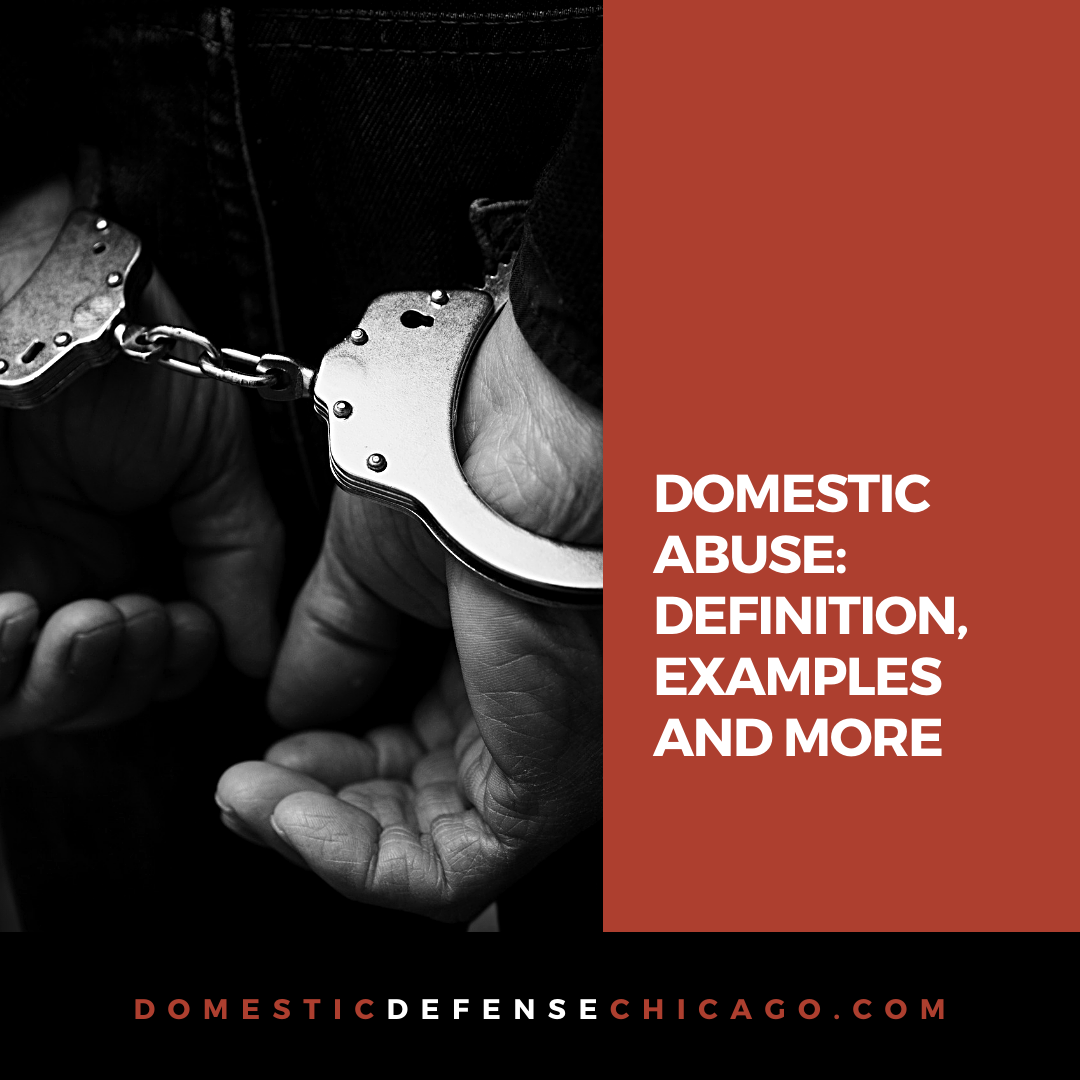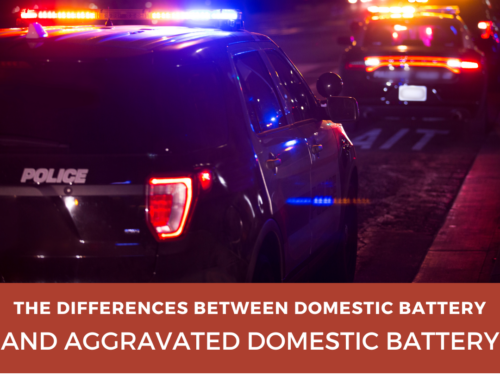Domestic abuse – in Illinois, called domestic battery – is a crime. But what’s the definition of domestic abuse, what does it look like in real life, and what kind of penalties will you pay if you’re convicted in Chicago, Skokie, Rolling Meadows or elsewhere in Illinois? Here’s what you need to know.
Domestic Abuse: Definition, Examples and More
In Illinois, the crime of domestic abuse is called domestic battery. Aggravated domestic battery is another form of domestic battery – and it carries harsher penalties than standard domestic abuse charges do.
Related: Domestic battery in Illinois
Domestic Abuse Definition
Domestic abuse is sometimes called domestic violence or intimate partner violence. In Illinois’ legal system, it’s only called domestic battery. Although the term “domestic” makes it seem like this type of abuse is limited only to people who live in the same house, but that’s not the case under Illinois law. The law defines domestic abuse this way:
(720 ILCS 5/12-3.2) (from Ch. 38, par. 12-3.2)
Sec. 12-3.2. Domestic battery.
(a) A person commits domestic battery if he or she knowingly without legal justification by any means:
(1) causes bodily harm to any family or household member;
(2) makes physical contact of an insulting or provoking nature with any family or household member.
Who is a Family or Household Member?
Only the following relationships can turn a battery charge into a domestic battery charge:
- Spouses
- Ex-spouses
- Blood-related family members
- Co-parents
- Current roommates
- Elderly adults and caregivers
- Disabled adults and caregivers
- Former roommates
- Individuals related by blood through a child
- Parent-child
- Stepparent-child
Domestic Abuse Examples
Domestic abuse is often a pattern of behavior within a relationship that one party uses to gain power or control over the other. Generally speaking, abuse can be physical, sexual, emotional, economic or psychological – but for the purposes of the law we’re citing here, it refers to physical bodily harm or threatening, insulting or provoking physical contact.
One example of domestic battery could be when your spouse or romantic partner pushes or hits you during an argument. Check out these examples, as well:
- Bryan catches Michelle as she’s trying to walk out the door of their shared home. He pulls her back by the arm against her will and holds her in place.
- Sarah throws a frying pan at Connor, her former spouse, during an argument. The frying pan hits him and breaks his wrist.
- Terri pins down her roommate by sitting on her while threatening to harm her for not paying rent.
- Two siblings get into a drunken argument that leads to a fistfight.
- Kim’s brother physically attacks her husband and father of her children, Joe.
What if You’re Accused of Domestic Abuse?
Unfortunately, it’s not uncommon for people to make false allegations of domestic abuse. If someone has accused you of any form of domestic abuse, you should talk to an attorney as soon as possible. The penalties of a conviction are serious – you could end up spending time in jail and paying steep fines. In fact, domestic battery is a Class A misdemeanor, and that carries a penalty of up to a year in jail and fines of up to $2,500. In some cases, domestic battery is a Class 4 felony – and in that case, the penalty is up to 3 years in prison and a fine of up to $25,ooo.
Do You Need to Talk to an Attorney About Domestic Abuse Charges?
If you need to talk to a lawyer about domestic abuse charges, we’re here to help. Call our office at 847-920-4540 immediately – or, if it’s easier, fill out the form below. In the meantime:
- Do not answer police’s questions. Use your right to remain silent.
- Stay away from the person who accused you of domestic abuse, even if it means finding another place to stay.
- Do not call or make contact with the person who accused you. Don’t even send messages through other people – even if the person who accused you apologizes and says they’ll “drop” the charges. (It’s not possible for a person to drop domestic battery charges in Illinois.)
- Avoid getting into any other legal trouble.
The best thing you can do after you’re accused of domestic abuse is to get in touch with an attorney who can help you, so call our office today.
Get help now!







Leave A Comment
You must be logged in to post a comment.